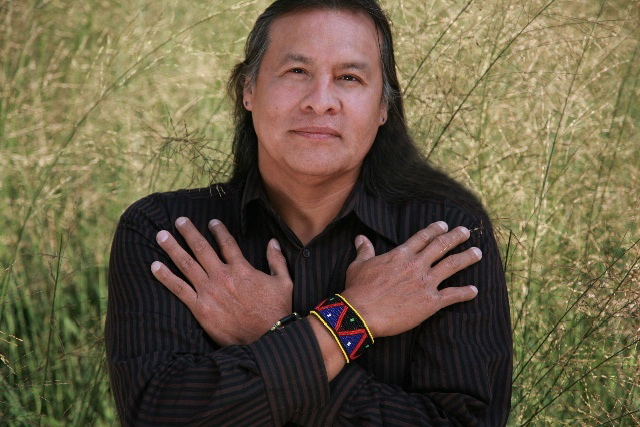This Week's Program: Wednesday, April 18, 2012
- Home
- This Week's Program: Wednesday, April 18, 2012
Loading...

SKYWAVES: Indigenous News Worldwide
STORY ONE: Chevron Lawyer Claims That Victims Of Rainforest Contamination Are “Irrelevant”
In South America A lead Chevron lawyer has made the preposterous claim that the 30,000 Ecuadorian victims of the oil giant's contamination are "irrelevant" to the court case that led to an $18 billion judgment against the company. Doak Bishop, a Chevron lawyer from the American firm King & Spalding, said the following before a panel of international investment arbitrators on February 15th: "The plaintiffs are really irrelevant. They always were irrelevant. There were never any real parties in interest in this case. The plaintiff's lawyers have no clients... There will be no prejudice to [the rainforest communities] or any individual by holding up enforcement of the judgment." Meanwhile, the Huffington Post published over a dozen photos of Ecuadorians who have died or have severe medical problems resulting from Chevron's contamination. By arguing that no Ecuadorians had been harmed or were in danger of being harmed, Bishop was trying to convince the panel of arbitrators that they should block the Ecuadorians from enforcing their judgment against Chevron in other countries, a strategy that has failed for multiple reasons. Chevron has a long history of trying to dehumanize the Ecuadorians by denying their very existence or by belittling their culture, said Pablo Fajardo, the lead lawyer for the communities. In 2010, Chevron tried to claim the signatures of 20 of the 48 named plaintiffs in the lawsuit had been forged by their attorneys. The charge was quickly rebutted after the plaintiffs appeared before a public notary to affirm their signatures were legitimate. Chevron engineers also belittled Ecuadorian indigenous leaders by making them wear Western clothes and suggesting that oil-laden streams were actually full of vitamins, according to published reports. The existence and relevance of the Ecuadorians has been affirmed by multiple independent journalists, including those working for 60 Minutes, The Sunday Night Show in Australia, The New York Times and The Washington Post. The $18 billion damage award, levied by an Ecuador court, will be used to clean up Chevron's deliberate contamination of the rainforest and provide clean drinking water and health care to the residents of the company's former concession area. The damage decimated indigenous groups and caused an outbreak of cancer, according to evidence relied on by the court in issuing the judgment. Chevron, under the Texaco brand, operated in Ecuador from 1964 to 1992. Chevron admitted dumping 16 billion gallons of toxic drilling fluids directly into waterways and streams relied on by local residents for their drinking water.
STORY TWO: In India
India, which doesn’t allow corporate farming domestically, has joined the growing list of countries going overseas to look for food security, with more than 80 Indian agribusiness companies investing more than Rp10.8 billion (US$211.2 billion) in African countries including Rwanda, Uganda, Kenya, Ethiopia, Congo, Madagascar, Liberia and Ghana. India is far from alone in looking for food security overseas, nor are the African nations where India is investing unique. Many developing countries, according to the Food and Agriculture Organization of the United Nations “are making strenuous efforts to attract and facilitate foreign investment into their agriculture sectors.” That has dovetailed with increasing nervousness on the part of countries which, either because of population pressures, lack of arable land or climate change problems, have begun to look overseas for land on which to grow their food. With the global transport network now providing the ability to move vast amounts of food around the planet cheaply, and with the world population having reached 7.023 billion, both the need and the ability to do so have overlapped. Deals, according to the report, occur at multiple levels, both within and between regions. In particular, as Asia Sentinel reported in May 2009, the major players were China, South Korea and countries in the Gulf States. However, today the deals have spread far beyond those countries, with the South African Commercial Farmers Association acquiring 200,000 ha in Congo and negotiating with another 22 African governments for more land, for instance. Brazilians are expanding their holdings in Bolivia, Vietnamese and Chinese interests are moving into Laos, UK interests are acquiring land in Eastern Europe. Kuwait has obtained 50,000 hectares of Cambodian farmland. Indian companies are growing oilseeds, cereals, flowers and tea in seven countries across Africa.. Although Indian companies are looking thousands of kilometers away in Africa for land on which to produce food, Sri Lanka is practically begging agricultural investors to enter the country, now recovering slowly from decades of sectarian violence and outright war. Still, it appears that agricultural colonization is gaining pace although according to the Committee on World Food Security, the amount of hectarage being purchased across the world is shrouded in secrecy and estimates vary wildly. As an example, one 2011study cited by the committee estimated that 46.6 million hectares were taken over by foreign interests in 81 countries across the globe between 2005 and 2009 while another puts the figure between 51 and 63 million ha which reportedly was taken over in 27 African countries up to 2010. The direct players include companies seeking land to grow food, feed and biofuels. STORY THREE: Rapa Nui Protest Against Esoteric Conference At Hanga Roa Hotel By Ahni Apr 18, 2012 The Hitorangi clan of the indigenous Rapa Nui people carried out a peaceful protest this week in response to an esoteric conference that was being held at Hanga Roa Hotel, a building that sits on the Hitorangi clan's ancestral land. Two years ago, the Rapa Nui occupied the hotel--along with 17 government buildings in an effort to reclaim their ancestral land rights on the island of Rapanui (also known as "Easter Island" and "Te Pito te Henua", the Navel of the World). The Rapa Nui were systematically evicted from the buildings with varying levels of violence.
On April 16, 2012, the Hitorangi Clan again protested in front of the Hotel Hanga Roa for the recovery of their ancestral lands. They did so in response to an international conference organized by Anvisibleesoteric (www.anvisible.com) being held at the Hotel Hanga Roa built on the Hitorangi clan’s land and sacred Ahu Makere (family altar) which had been unlawfully and violently taken. The Hitorangi clan invoked their ancestors (matamúas) asking them to help them in their struggle to regain their land. The peaceful protest took place outside the hotel and was attended by 40 members of the Hitorangi clan. Adults and children carried signs, chanting they voiced their discomfort to tourists who were staying at Hanga Roa Hotel. The tourists hid in the inner courtyards of the hotel to avoid the protesters. Nevertheless, family members were able to hand the tourists brochures and tell them about the Hitorangi clan’s struggle to regain possession of their lands. Under Chilean law only Rapanui people can own land on the island. However, the current Chilean administration under Piñera continue to violate Chilean and international law. This is one of the many protests that have occurred in recent months. These protests will continue in the coming weeks to ensure that the land be returned to the rightful owners. Credit is Rapa Nui Press Contact: Santi Hitorangi (845) 596-5402 Contact: Trinidad Milestone 9715.8080 (Entel) “News sources today include Intercontinental Cry, Aboriginal New Group and First Peoples Worldwide" “Skywaves is produced in the studios of WBAI NY and in alliance with First Voices Indigenous Radio and First Peoples World Wide, the only direct funder to Indigenous communities globally. Go to FirstPeoplesworldwide.org or Firstvoicesindigenousradio.org to download todays featured stories. Email us at Skywavesnews@gmail.com Thanks for joining us.”


